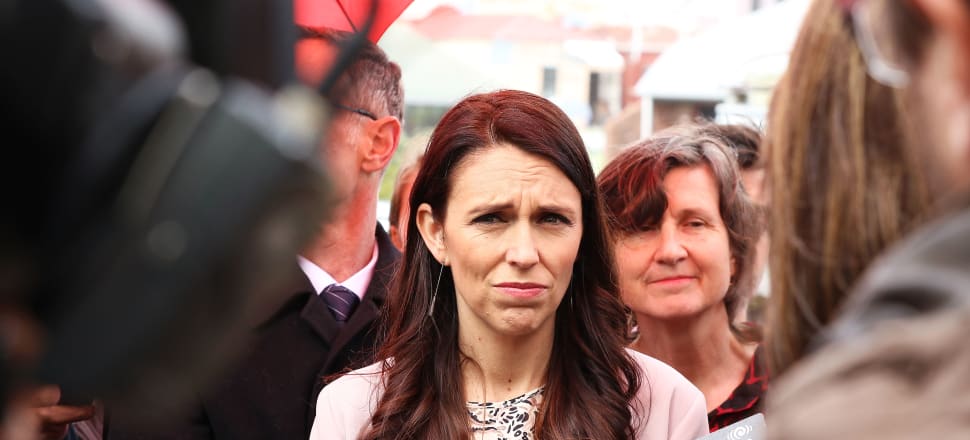
Prime Minister Jacinda Ardern is done piloting the ship, citing a lack of gas in the tank. But with the incredible demand of top leadership roles, what else can be expected?
In conversation with Newsroom, former prime minister Geoffrey Palmer did little to sell the job.
He described his tenure as prime minister from 1989 to 1990 as light on the thanks and respect and heavy on the abuse and time pressures.
“I don’t think the public has any idea of the how tough this job is and it is nearly as bad for the leader of the opposition and senior ministers,” he said.
READ MORE: * Lianne Dalziel: Too many of us are running on empty * Rare candour shocks even those in the room * PM's defining legacy of crisis * Rocks ahead! Leaders struggle at the helm of the world economy
And he doesn’t think it’s gotten any better over time. A new world of social media-borne conspiracy theories and digital vitriol has added to the weight of the world for the would-be Atlases of New Zealand democracy.
“The amount of abuse has got greater over time,” he said. “The conspiracy theorists have added to this - it has come from the US and is totally irrational – and democracy in New Zealand has been disturbed by it.
“She has done a terrific job but no one could stand up to what she has been coping with for too long,” he said. “When she says she has 'nothing left in the tank’ we should believe her.”
That’s how Ardern described her reason for leaving the top job, proactively rejecting accusations of the job being too hard or her taking this moment to duck out due to Labour’s poor performance in the polls.
Rather, she spent more than five years in a job that’s already a high-stakes pressure cooker, and then was served with an almost constant menu of crises to respond to.
Her leadership was punctuated with calamity - the mosque shootings in Christchurch, the Whakaari White Island eruption, a once-in-a-lifetime global pandemic.
Now war and economic uncertainty in far-off quarters of the globe are destabilising a country that once considered itself so insulated, able to stave off global financial crises and emerge as a ‘rockstar economy’.
In 2023, the cost of living, supply chain issues and staff shortages plaguing key sectors paint another picture.
Ardern knew people would immediately begin speculating as to why she threw in the towel, and perhaps wanted to stave off the more fanciful lines of questioning.
“The only interesting angle you will find is that after going on six years of some big challenges, that I am human,” she said. “Politicians are human. We give all that we can, for as long as we can, and then it’s time.”
And for her, she continued - it’s time.
To Victoria University of Wellington clinical psychologist Dr Dougal Sutherland, phrases like "no more gas in the tank" are common recitations when he deals with people from the public and corporate sector who have had too much on their plate for too long.
He said people in high pressure jobs like CEOs and top politicians often seesaw between near-burnout and immense job satisfaction.
They’re jobs that can provide purpose and meaning by the bucketful, but also have no respect for personal boundaries and schedules - you never know when you could be called out of bed in the middle of the night to be told that the Queen has died.
“Their levels are consistently above the norm,” he said. “They’re always on. Some have described it to me as like a background hum of cortisol.”

Plus, it’s lonely at the top.
High-pressure jobs are high-power jobs, without anyone to look up to for a temporary hand-hold, or even many near your level to debrief with.
“You can’t go out to the pub and have a few too many and make a fool of yourself and go home again.”
At least not without calling a snap election, perhaps.
Sutherland said burnout and stress are issues so many of us are dealing with, but he suggests people consider how much blame they are putting onto themselves for not being able to cope.
“I usually say you are responsible for about 50 percent, and your workplace is responsible for 50 percent,” he said.
So how can people seize responsibility of that half allotted to them by his maths?
Part of it is about developing a healthy ability to compartmentalise and distance yourself from work when not at work.
“Where you are, be there,” Sutherland said. “It’s about beginning to notice the patterns of your attention… if your attention is back at work and you don’t want it to be there, you can shift it back to where you are.”
Perhaps it's a question of boundaries or mindfulness, or having healthy relationships and habits that sustain you and give you the ability to recharge.
But he said the workplace’s role in reducing burnout is often overlooked.
Overly heavy workloads are often out of the worker’s hands, and businesses that recognise meeting employees in the middle are more likely to have happy and rested staff. And happy and rested staff then go on to be more productive staff.
It’s a simple enough equation for most workplaces, and the trend is going towards companies beginning to realise that a certain amount of flexibility and understanding will actually help them in the long run.
But what if your workplace is the Beehive?
“They can’t go, can we just stop a minute - I don’t want to deal with Covid anymore,” Sutherland said. “You don’t get that opportunity and that’s perhaps something that’s unique to people in high leadership positions.”
He suggested this could be a good opportunity to look at how the halls of power are run and see if there’s a way to make it a more supportive workplace.
Palmer said the answer lies in more MPs.
“I think we have a resilient political system but we don’t have enough MPs,” he suggested. “There is too much expected of the four or five people that end up running the country. Even the opposition doesn't have enough people to hold the Government to account.”
At present, the heavy responsibility falls on but a few, and there’s little opportunity for a breather.
“The decisions that had to be made have been continual, and they have been weighty,” Ardern said today.
But while that’s always been the case for those in the highest of offices, Ardern’s time in the seat has had its own peculiar streak of abuse and rancour.
She has remained in high position as preferred Prime Minister, but the venom and vitriol on roadside signs and comment sections has only grown in ferocity.
University of Auckland media and communications professor Dr Neal Curtis has been charting the rise of online hate, misogyny and its potential effects on the Prime Minister.
“There’s so many levels. Not only have you got to deal with the work of the Prime Minister, with far more to deal with than someone like John Key,” he said. “She had to make incredibly difficult decisions all the time against this backdrop of people calling her Cindy and portraying her as some sort of infantile child and expressing that they want to see her dead.”
He said the ubiquity of social media and media manufacturing outrage both contributed to an abusive environment online.
“Social media is so polluted by this kind of trolling and abuse and conspiracy theories and disinformation, that the media landscape itself becomes more polluted,” he said.
He said thinking about another three years in a job that comes with its own promises of personal attacks must be exhausting.
“I don’t see it as just being about it being a hard job - it’s just that she’s no longer prepared to do it,” he said. “She’s the mother of a young child… I’m sure her children growing up in that kind of toxic environment is part of that consideration.”
Palmer had similar concerns in his own time in the job.
“There is nothing good about it in terms of family life and your children get abused at school,” he said.
The amount of gas left in the tank aside, the fact that young Neve is rapidly approaching school age could be good enough reason to step aside.
“I am looking forward to spending time with my family again – arguably, they are the ones that have sacrificed the most out of all of us,” Ardern said as she announced the end of her time in the country’s toughest job.







